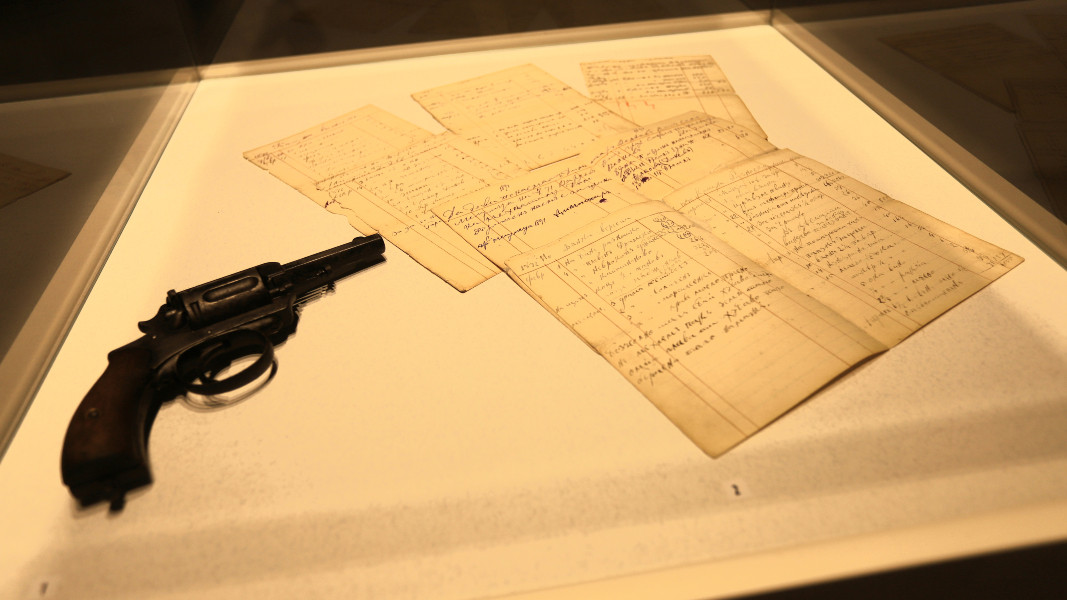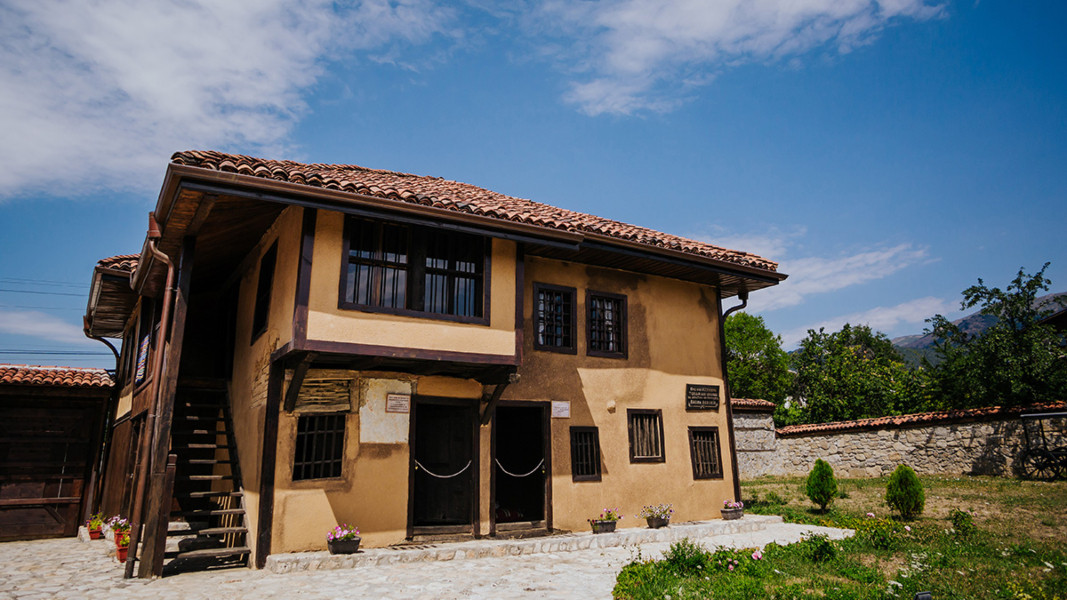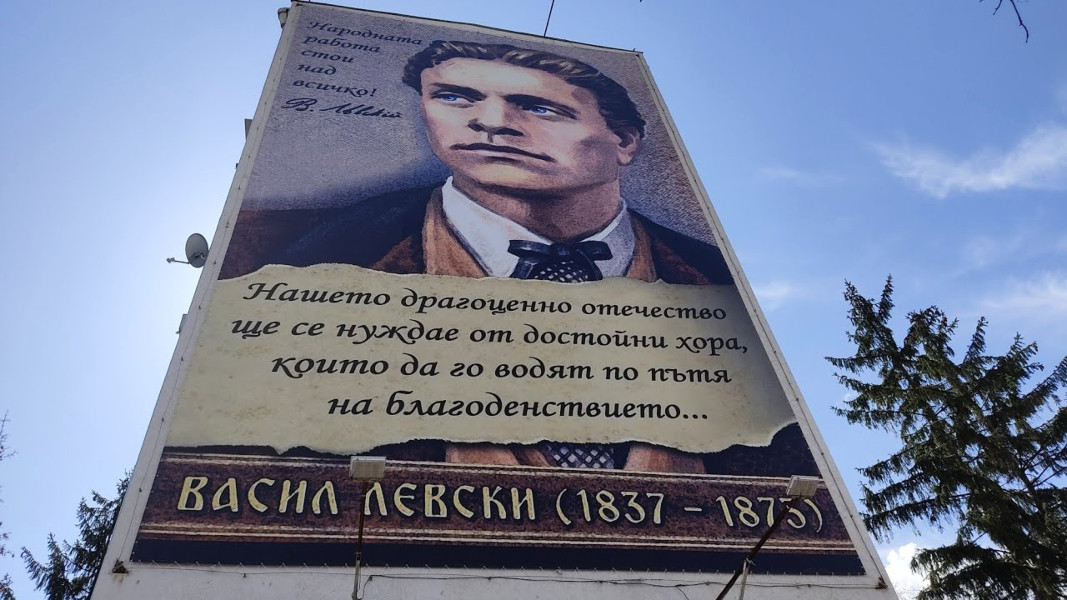In the 1860s Bulgarians were feeling that the old order within the Ottoman Empire was irretrievably gone and the time for big changes was coming. Newspapers spread the news of revolts and wars across the Balkans and Europe. The intensification of the Chetnik revolutionary movement demonstrated that there were people who were ready to sacrifice their lives for the longed-for liberation. This general spirit of readiness and determination to fight, especially among the young, educated and enlightened Bulgarians, gives grounds to say that there was a national liberation movement among the Bulgarian people, who now wanted to overthrow Ottoman rule and regain the independence of their country. Among the various ideas, proposals and undertakings there was no unity that could lead to any specific action. The rebelous spirit had to be organized. Vasil Ivanov Kunchev, who has remained in history as Levski - the Apostle of Freedom, emerged in such a turbulent time.
He was born on 18 July 1837 in the town of Karlovo. His father died early. Young Vasil attended the town school, continued his studies in Stara Zagora, and then his uncle, Archimandrite Vasilij, sent him to Plovdiv to study to be a priest. In 1858, he was ordained a monk under the name Ignatius. In 1861, he gave up his clerical career, but remained a "lay deacon" and volunteered in Belgrade, where Georgi Stoykov Rakovski convened the First Bulgarian Legion. During the storming of Kalemegdan, Vasil Kunchev showed courage and agility, and the leap he made made his comrades exclaim - "this is a lion's leap" and hence the nickname Vasil Levski (of a lion).
He then returned to Plovdiv, where he was arrested for some time. After getting out of prison, he started teaching in the villages. In 1866, he emigrated to Wallachia (present-day Romania), but later returned as a standard-bearer in Panayot Hitov's Detachment, which for 99 days made its way through Bulgaria to Serbia. There Vasil completed the non-commissioned officer course of the Second Bulgarian Legion. At that time he fell seriously ill and left again for Wallachia.
During his travels Levski met many people, listened to their opinions, argued and gradually formed his vision in the service of the Fatherland. He wanted the Bulgarians to be liberated on their own, without outside help, by a national uprising prepared by a network of committees. Thus Levski set out as an apostle among the people to preach a new faith, in which he himself already firmly believed - the faith in a Free Bulgaria.
From 1869 to 1872, in his wanderings around Bulgaria, he gradually established the network of the Internal Revolutionary Organization. In the revolutionary committees in the towns and villages he recruited the most alert, courageous and loyal Bulgarians.
Around 1870 Levski established one such committee in the town of Zlatitsa in the outskirts of the Balkan mountain range. His refuge was in the church metoch of nearby monastery "St. George". The town was at that time the centre of a kaza - an administrative division in the Ottoman Empire - with a population of about 5,000, of whom 4,500 were Muslims, and only about 500 Christians.
 "It was in such places that the Turks least expected that there could be such a committee," says Ivan Ivanov, doctor of historical sciences. And takes us to the building of the metoch in Zlatitsa, which will forever hold the memory of Vasil Levski: "In the historical archives we found data about this building, indicating that it was built in 1834. As I was researching it, it was then in a deplorable state, I noticed something very curious and extraordinary. The most spacious room, which faces the street, has two entrances, one on the courtyard side and one on the street side - this is the candlemaker's room. Descending into the basement, right in the middle of it you come across three stone steps. When you go up to the first floor, you realise that these stone steps lead right under the hearth, i.e. there was a secret exit from the candlestick room that went into the cellar. From there, through the basement windows, Levski would have been able to save himself if they came looking for him in the church metoch. This building keeps the memory of the Deacon. Every year, since time immemorial, when it is time to worship and pay tribute to the great Bulgarian, the inhabitants of Zlatitsa hold a large torchlight procession - a tradition that has never been interrupted over the years. Students, adults, elderly people and children every year march by torchlight at night and lay wreaths and flowers on this building so that the memory of the Apostle is preserved for posterity."
"It was in such places that the Turks least expected that there could be such a committee," says Ivan Ivanov, doctor of historical sciences. And takes us to the building of the metoch in Zlatitsa, which will forever hold the memory of Vasil Levski: "In the historical archives we found data about this building, indicating that it was built in 1834. As I was researching it, it was then in a deplorable state, I noticed something very curious and extraordinary. The most spacious room, which faces the street, has two entrances, one on the courtyard side and one on the street side - this is the candlemaker's room. Descending into the basement, right in the middle of it you come across three stone steps. When you go up to the first floor, you realise that these stone steps lead right under the hearth, i.e. there was a secret exit from the candlestick room that went into the cellar. From there, through the basement windows, Levski would have been able to save himself if they came looking for him in the church metoch. This building keeps the memory of the Deacon. Every year, since time immemorial, when it is time to worship and pay tribute to the great Bulgarian, the inhabitants of Zlatitsa hold a large torchlight procession - a tradition that has never been interrupted over the years. Students, adults, elderly people and children every year march by torchlight at night and lay wreaths and flowers on this building so that the memory of the Apostle is preserved for posterity."
 Once he had established a network of dozens of committees, Levski's reputation spread from ear to ear, people were admiring his agility and resourcefulness in avoiding the pitfalls and difficulties of the authorities who sought for him.
Once he had established a network of dozens of committees, Levski's reputation spread from ear to ear, people were admiring his agility and resourcefulness in avoiding the pitfalls and difficulties of the authorities who sought for him.
After establishing a network of dozens of committees, Levski's reputation spread from ear to ear, people admired his agility and resourcefulness in avoiding the traps and dangers as the Ottoman authorities went hunting for him. Most important, though, were the Apostle's ideas. His work marked a high point in Bulgaria's national liberation movement. Not once did he deviate from his goal of organizing an autonomous Bulgarian uprising, an armed revolution led by revolutionary committees. Levski believed that the revolution would succeed only if the most dedicated Bulgarians participated in its ranks. The Apostle's vision extended further - in the liberated Bulgarian state he envisaged the establishment of a pure and holy republic in which justice and equality of the various nationalities would reign. However, Levski did not live to see the outbreak of the April Uprising. In 1872 he was captured and sentenced to death, and on 18 February he was hanged on the gallows in Sofia.
The trial of Vasil Levski remains shrouded in mystery. Neither the Turkish nor the world press wrote about it. The had no idea of the tragedy in the Turkish Conak, where the Apostle of Freedom, was sentenced to death. Noone outside of Bulgaria knew at the time the story of the man who overcame the power of an empire with his will and faith in the national cause. Apart from Levski's trial, his grave in Sofia remains a mystery to this day. There are many versions and assumptions where the bones of this great Bulgarian may rest, but no one can give irrefutable proof where his tombstone should be erected.
More importantly, Levski, through his legacy, is strongly present in people's minds today. 150 years after his death, his words are more relevant than ever: 'Our beloved Fatherland needs worthy people to lead it along the path of prosperity so that we can be equal to other European nations'.

Photos: BFNES, zlatitsa.com, YouTube@AlexanderSeniorMitov
English version: Elizabeth Radkova
This year, the holiday of Christmas for the Bulgarian Eastern Orthodox Diocese in the United States, Canada and Australia is especially exciting! Metropolitan Joseph’s long-standing prayers to have his own vicar bishop have come true. His previous..
His Holiness Daniil, Patriarch of Bulgaria and Metropolitan of Sofia, addressed the Orthodox Christians on the eve of the bright Nativity of Christ (Christmas Eve). "Silent in prayer, gathered around the warm hearth, we await the fulfilment of what was..
In anticipation of the Nativity of Christ, the Orthodox Church opens its doors for today's divine services, heralding the fulfillment of the mystery of the Incarnation. "Let us experience the Nativity of Christ during the solemn services, so..
Today, The Bulgarian Orthodox Church honors the memory of Saint John the Baptist, also known as Saint John the Forerunner, because he prepared people for..
On January 6, the Bulgarian Orthodox Church is marking Epiphany. According to the Bible, on this day John the Baptist baptized Jesus Christ in the Jordan..

+359 2 9336 661
